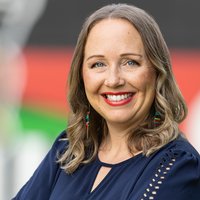Cultivating Communities
Throughout LISC’s history as a national organization and the thirty years of LISC Indianapolis’ local investment, we have supported the involvement of faith-based institutions, specifically congregations, in efforts to revitalize their communities. This has been true almost from the inception of LISC in the 1970’s, working with Rev. Floyd Flake of the Allen African Methodist Episcopal (A.M.E.) Church in Queens, NY. This is entirely appropriate given that in some communities hard hit by economic decline, churches may be among the last institutions standing, holding together the fabric of a neighborhood. Historically, LISC has always leaned into CDCs/CBOs as the primary organizational entity to work with and lead revitalization efforts, and have worked with many congregations who have established CDCs, both in Indianapolis and other geographies, to implement their commitment to their communities. Locally, we have worked with faith-based CDCs like Englewood CDC, Oasis CDC and others. In 2021, this has support included Mt. Paran Baptist Church and its HOPE CDC through our Building Innovation for Equitable Childcare initiative to develop a freestanding childcare facility with additional community-serving uses.
However, not every congregation wants to create such infrastructure, or has need of a CDC structure in order to advance a neighborhood’s community development agenda. Indeed, churches are uniquely positioned to use the tools of influence, volunteerism and advocacy to help neighborhoods thrive. LISC has continued to refine our strategies for engaging with congregations who wish to put their resources and membership in service to the neighborhoods in which they reside. In the same way that our successive Sustainable Communities efforts have helped us prove out working models for a community development system, we are also evaluating and testing strategies to work with congregations.
Cultivating Communities, led by Englewood CDC and funded by The Lilly Endowment, seeks to partner with and empower communities of faith to lead economic mobility efforts in their neighborhoods. This four-year program calls upon people from different backgrounds – government, business, non-profits, philanthropy and faith- to collaborate in a structured way toward a common goal. Faith-based organizations are the backbone of this process and are introduced to the local economic development ecosystem. They are provided access to services, grant funding, and networking for various programs to help implement a plan toward improving economic mobility for residents of each congregation’s neighborhood. This may also include physical improvements such as improving roads and sidewalks, creating access to good paying jobs, expanding childcare options or building affordable housing.
The congregations invited to join the cohort include:
- West Morris Free Methodist Church (2302 West Morris Street, Indianapolis IN 46221)
- Chapel Rock Christian Church (2020 N. Girls School Road, Indianapolis, IN 46214)
- Light of the World Christian Church (4646 N. Michigan Road, Indianapolis, IN 46228)
- Friendship Missionary Baptist Church (1301 N Goodlet Avenue, Indianapolis, IN 46222)
- New Liberty Missionary Baptist Church (10125 30th Street, Indianapolis, IN 46229)
- Living Word Baptist Church (4934 E 21st Indianapolis, IN. 46218)
- Shiloh Missionary Baptist Church (3801 Forest Manor Avenue. Indianapolis IN 46226)
LISC is a partner with Englewood CDC in this groundbreaking effort to engage a cohort of congregations in this collective impact effort. LISC is providing support and guidance for their collective impact strategy implementation, and will connect the efforts developed by these congregations to the existing array of development resources and community investment infrastructure already in place. More important still, LISC will use this partnership as another opportunity to increase our effectiveness in helping activate and engage every asset neighborhoods possess in the service of their revitalization. Congregations are key stakeholders all too often insufficiently connected to the community development agenda of neighborhoods. This initiative will further refine and develop the best practice and strategies that help congregations combine their faith and their service.

